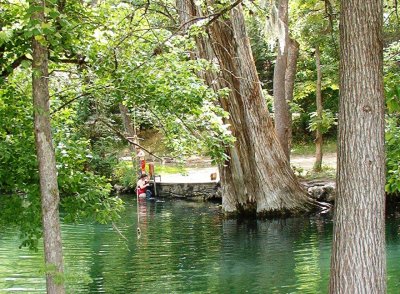As part of a post on gun control, Gordon Atkinson describes the history of hunting in his family:
I am not a hunter, but I come from a family of hunters. One of my grandfathers grew up in a poor family of sharecroppers. When he was a boy, his family hunted animals, killed them, and ate them…
My uncles and father hunted with my grandfather, but by that time hunting was no longer a necessity. It was something that they enjoyed. There were old rituals involved that reminded them of their roots and of the land and of our close ties to it. They chose to hunt and eat what they killed instead of buying all of their food from a store.
My father moved to the city, and I grew up in that environment. I went hunting with my grandfather, father, and uncles when we were visiting East Texas. It was something that men did together in our part of the world…
I don’t want to get into the gun control issue, but Gordon’s description of the tradition of hunting in his family caused me to reflect on my own history with hunting and guns.
Guns were an important part of my upbringing. I learned to shoot at an early age, had a BB/pellet gun from as early as I can remember, and had gun safety drilled into me. My dad hunted some for sport, mostly with business contacts in South Texas (though we always ate what he killed), but I was mostly only involved with deer hunting which we did primarily for food purposes.
Living in the Texas hill country, we shot deer close to home, and we weren’t concerned with killing bucks with big racks. We also butchered and processed all our own meat (unlike many hunters who take their deer to a meat processing plant). I never knew whether we were eating store-bought beef or home-processed venison.
I have not hunted since I left home for college, but I go through phases when I would like to take my son Samuel hunting. It’s important to me that he learn where his food comes from. After reading Gordon’s post, though, I realize why I have never done so. It would lack the social significance that Gordon describes. For Samuel and me to hunt, we would have to go about it as other suburban sportsmen–get a deer lease, buy gear, etc. It would be an event or an outing, not part of our family routine, as it was when I was a kid.
I also recently bought Samuel his first BB gun. He shot targets with it for a few days and then lost interest in it. I realize now that I was disappointed with this. To me, getting your first BB gun is an important rite of passage. In his suburban life, it was just another toy.



